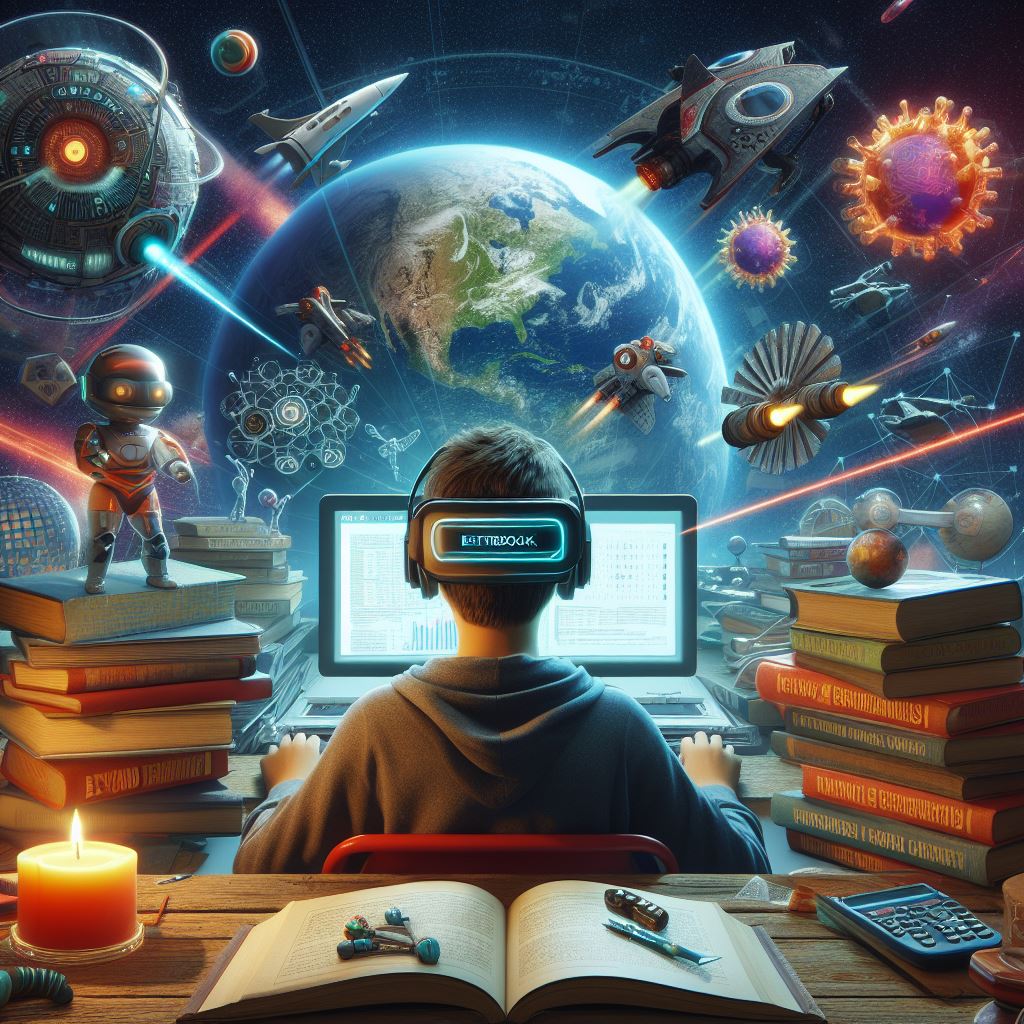
27 Mar, 2024
Imagine a classroom where students can dissect a frog without harming a single creature, explore the pyramids of Giza without leaving their seats, or travel back in time to witness the signing of the Declaration of Independence. This isn't science fiction – it's the transformative power of Virtual Reality (VR) in education, and at Horfay Taqnia, we're dedicated to making it a reality for schools everywhere.
For decades, learning has been confined to textbooks and lectures. While these methods have served their purpose, they often fail to capture the imagination and spark a genuine love for learning. VR disrupts this traditional model by offering an immersive and interactive learning experience that transcends the limitations of the classroom.
Why VR Matters: Boosting Engagement and Retention
Let's face it, traditional learning can be downright dull. Students are bombarded with information, expected to passively absorb it, and then regurgitate it on tests. VR flips this script entirely. By placing students in the heart of the subject matter, VR ignites their curiosity and fosters a deeper understanding.
Imagine a history lesson where students aren't just reading about the Roman Colosseum; they're standing in the middle of it, experiencing the roar of the crowd and the grandeur of the architecture firsthand. This immersive experience creates a powerful emotional connection that traditional methods simply cannot replicate.
Studies have shown that VR can significantly improve learning outcomes. A research paper published in Computers & Education found that students who used VR to learn anatomy performed significantly better on exams compared to those who used traditional methods. Another study published in the Journal of Educational Psychology demonstrated that VR can enhance spatial memory, a crucial skill for subjects like math and science.
VR: A Gateway to Unparalleled Experiences
VR's true power lies in its ability to transport students to places and times that would otherwise be inaccessible. Here at Horfay Taqnia, we're developing VR experiences that cater to a wide range of subjects:
The possibilities for VR-powered learning are truly endless. Horfay Taqnia is committed to creating high-quality, engaging VR experiences that are accessible to schools and educators around the world.
Beyond Engagement: VR Fosters Empathy and Collaboration
VR isn't just about information; it's about fostering important life skills.
Addressing Concerns: Cost and Accessibility
The cost of VR headsets has come down significantly in recent years, making it a more attainable technology for schools. Additionally, Horfay Taqnia is committed to developing cost-effective VR experiences and exploring creative solutions such as shared headsets or mobile VR experiences to ensure all students benefit from this transformative technology.
VR: A New Era for Education
VR is not a replacement for teachers or traditional teaching methods. Instead, it's a powerful tool that can enhance the learning experience and make education more engaging and effective.
As VR technology continues to evolve, we at Horfay Taqnia are constantly innovating and developing new immersive learning experiences. This is an exciting time for education, and VR has the potential to revolutionize the way we learn and teach.
The Future is Now: Embracing VR in Education with Horfay Taqnia
The time to embrace VR in classrooms is now. Horfay Taqnia is here to partner with educators and schools to unlock the limitless potential of VR and create a more engaging and effective learning environment for all students. Let's move beyond the confines of textbooks and lectures and embark on this exciting journey together.